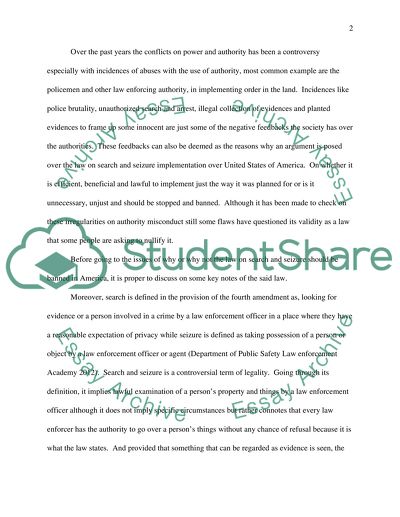Cite this document
(The Law on Search and Seizure Term Paper Example | Topics and Well Written Essays - 2500 words, n.d.)
The Law on Search and Seizure Term Paper Example | Topics and Well Written Essays - 2500 words. Retrieved from https://studentshare.org/social-science/1401804-search-and-seizure
The Law on Search and Seizure Term Paper Example | Topics and Well Written Essays - 2500 words. Retrieved from https://studentshare.org/social-science/1401804-search-and-seizure
(The Law on Search and Seizure Term Paper Example | Topics and Well Written Essays - 2500 Words)
The Law on Search and Seizure Term Paper Example | Topics and Well Written Essays - 2500 Words. https://studentshare.org/social-science/1401804-search-and-seizure.
The Law on Search and Seizure Term Paper Example | Topics and Well Written Essays - 2500 Words. https://studentshare.org/social-science/1401804-search-and-seizure.
“The Law on Search and Seizure Term Paper Example | Topics and Well Written Essays - 2500 Words”, n.d. https://studentshare.org/social-science/1401804-search-and-seizure.


